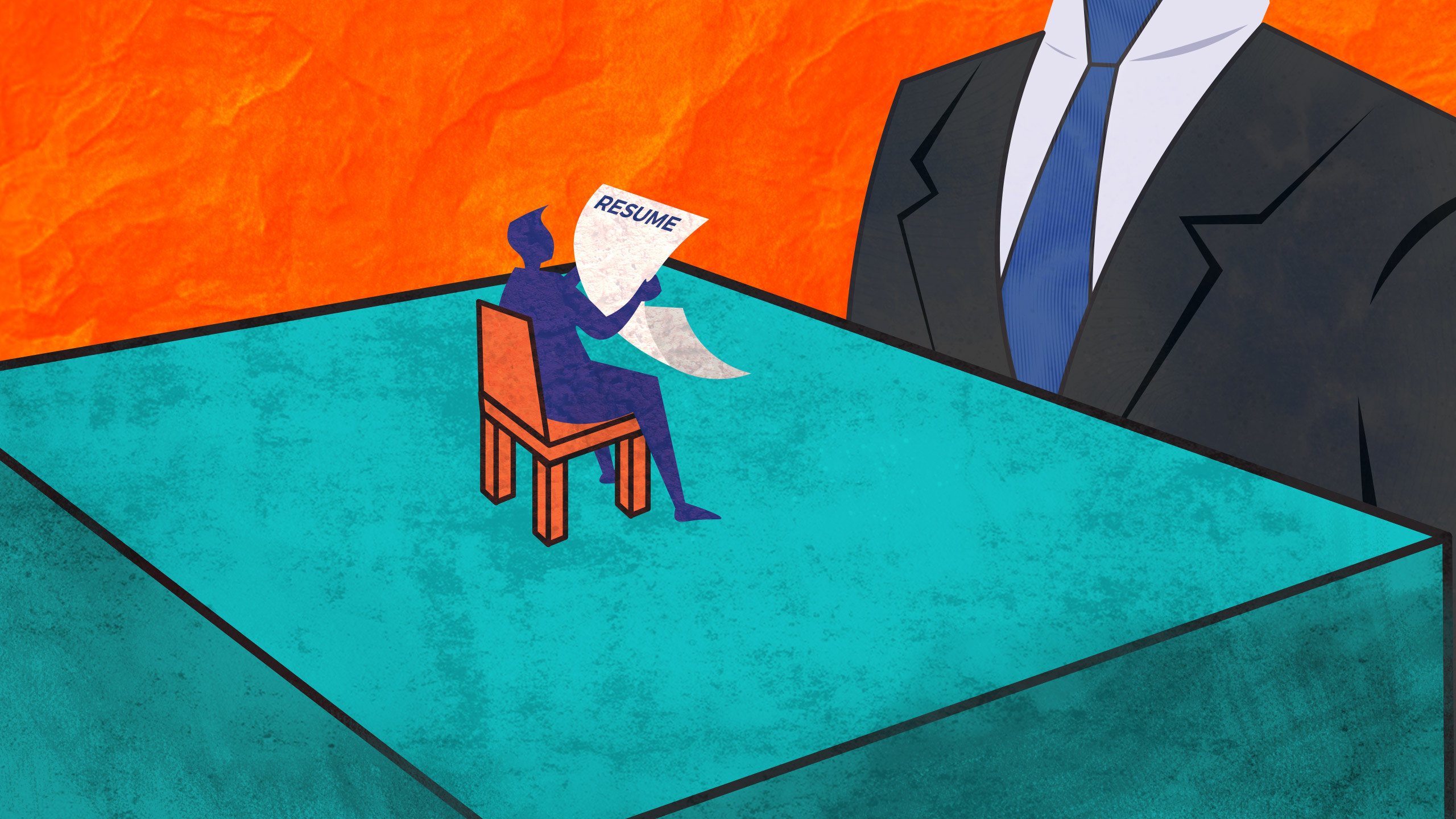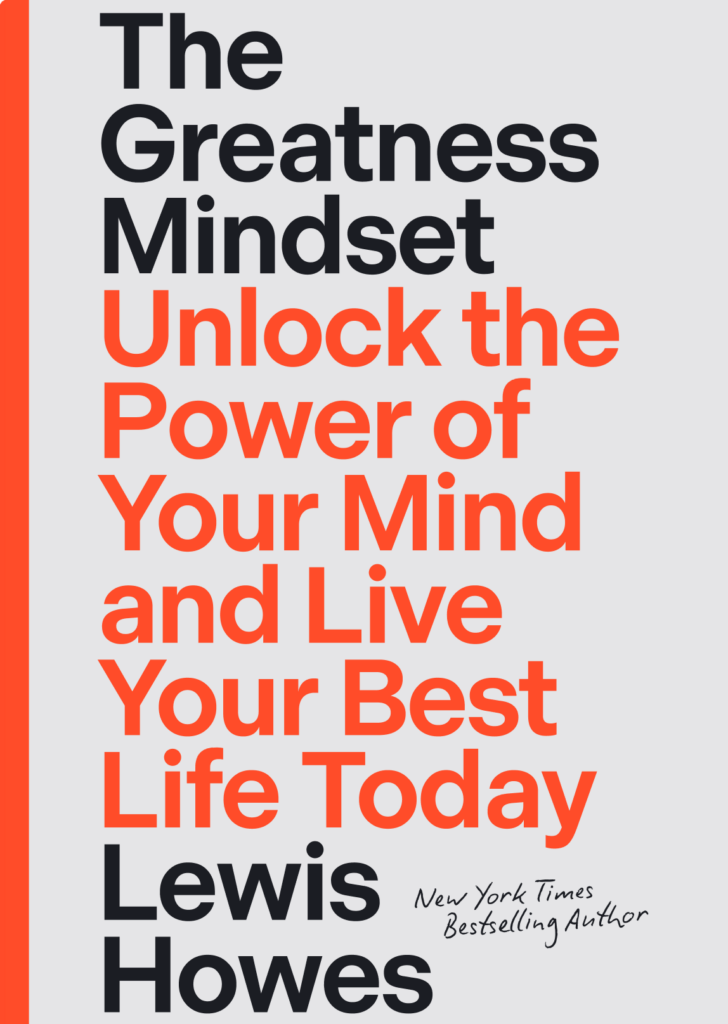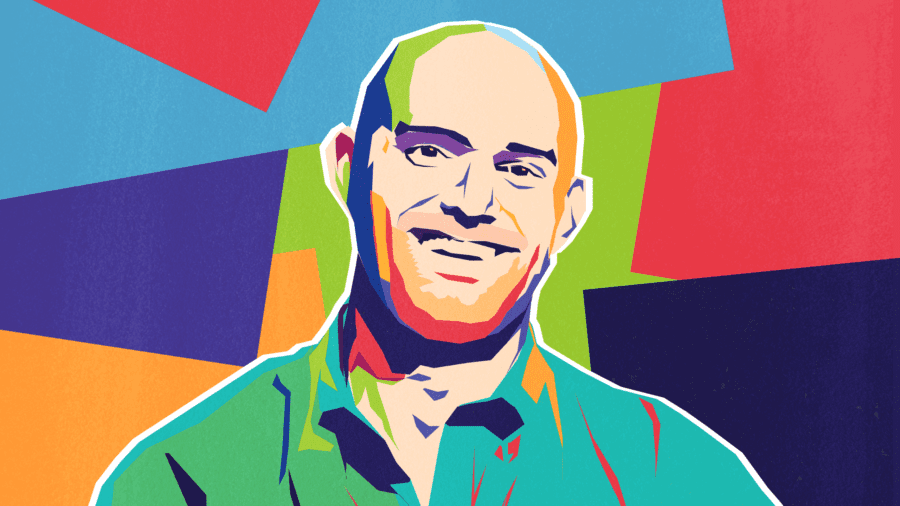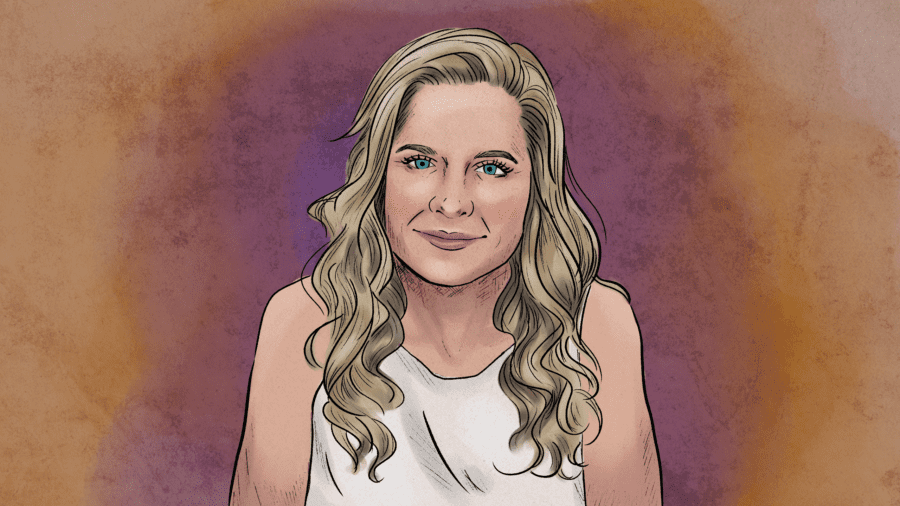
Looking for a New Job? Here’s Our Guide to Managing Interview Anxiety and Showing Up as Your Best Self
Are you looking for a new professional opportunity but worried about the interview process?
You’re not alone! Almost everyone experiences a degree of nervousness leading up to an interview, and you are fully capable of overcoming your doubts and presenting yourself in a highly professional manner.
In this article, you’ll learn all about how to show up as your best self and calm your anxiety to excel in the interview process.
Do Your Research to Craft the Best Interview Answers
In order to show up as your best self during an interview, you need to feel prepared and confident, and one great way you can build your self-assurance is by researching the company you’re interviewing with and potential interview questions.
Fortunately, if you’re reading this, you likely have access to the internet, where you can conduct extensive research about the business, the position, and general interview questions.
Some larger corporations even have their interview questions available on various blogs and job sites.
For example, the website The Interview Guys features common interview questions from different corporations such as Microsoft, Apple, Google, and more. These different corporations may change the phrasing of their questions or ask other questions, but this is a great place to start.
You can also research common questions for your particular industry whether you’re in marketing, education, financial services, healthcare, or another field.
Additionally, consider preparing for general interview questions we’ve come to know and expect such as “Where do you see yourself in five years?” “What are your weaknesses?” “Why did you leave your last job?” and other staples.
One critical aspect of researching and crafting your answers is knowing more about the company as a whole. You should shape your answers in a way that caters to the specific organization and what they need from a new employee. Pay close attention to the job’s description and responsibilities to create the best possible answers.
For example, if the company is looking for a marketing manager and the job posting emphasizes leadership and creativity, you would formulate your answers in a way that showcases your skills and experience leading others. You can also tie in how your creative and analytical skills have helped you create or evaluate marketing campaigns.
Research to Formulate Effective Questions
Has an interviewer ever asked you if you have any questions for them? How did you answer?
The worst thing you can do is not have any questions about their company or the position, which communicates that you’re not especially interested in the opportunity.
During the research stage, you can formulate effective questions for the interviewer that communicate your interest and enthusiasm for working for the company. You can ask them about their company’s values and vision or request they tell you more about their mission statement.
You can also communicate your excitement for the position by asking for specifics about the role’s responsibilities and expectations.
One critical note is this is NOT the time to negotiate a desirable salary, and you should wait until you receive a job offer before negotiating. Instead, use this part of the interview to communicate that you’ve researched the company and are interested in helping them with their mission.
Write Out Your Answers
When researching the company and the open position, you may be tempted to formulate broad, tentative answers in the back of your mind rather than more specific, concrete ones. This method may get you into trouble during the interview.
You’re likely to predict at least some questions the interviewer will ask, so why not write out the best answers possible?
Interviewers want clear and concise answers, and if you fail to prepare your exact responses beforehand, you’re more likely to ramble and waste time. Interviewers only have a set amount of time they can spend to evaluate whether you’re a good fit, so if you give a long-winded answer about your strengths and weaknesses, you might not have the opportunity to convey why you’re the right person for the job.
Additionally, completing your answers beforehand allows you to come across as more confident in the interview.
For example, if you’re taking too much time to answer the question, “Where do you see yourself in five years?” that will come across as professional uncertainty, a quality usually not appealing to interviewers.
You should also prepare the exact answers to questions you’re worried about. For example, if there’s a work gap in your resume, the interviewer will likely ask about it. Rather than being caught off guard or giving a lengthy answer that circumvents a direct response, you can prepare an honest, straightforward answer that still showcases your qualifications for the position.
In this example, you could say something along the lines of, “I was taking time away from work to evaluate my professional goals.” If you traveled during that time or did something else notable, you could talk about what you did, the skills you gained, the lessons you learned, and how they will assist you professionally moving forward.
Practice Makes Perfect
After you write out your answers, it’s time to practice. You can practice with a mock interview at a career development center or by using online resources such as InterviewBuddy. Alternatively, you can have a friend, family member, or acquaintance conduct an interview — preferably one with interviewing experience.
Regardless of who conducts your practice interview, you and the interviewer need to take it seriously. Have them ask you the questions you’re expecting but also request they throw in surprise questions. Some interviewers will ask unexpected questions, so practicing your ability to think quickly on your feet is helpful.
Additionally, you should record the interview process. By watching the way you deliver your answers, you’ll likely discover filler words you gravitate toward such as “um,” “so,” and “you know.” When you’re aware of your filler words, you can avoid them in order to speak more effectively and clearly.
You can also watch yourself without the video’s audio to pay attention to your body language. Your physical demeanor can communicate a great deal about you, so it’s essential to practice how you present yourself so that you come across as more confident and professional.
When you take the time to practice in mock interviews, you’ll feel more confident and ready to take on the real interview.

The Greatness Mindset
Learn the secrets of some of the greatest minds in the world. Unlock the power of your mind and live your best life today.
Learn MoreHow to Calm Your Nerves Before an Interview
Even though you can prepare and practice, you may still feel nervous or anxious right before your interview.
Good impressions are tremendously important, so you want to be the best version of yourself when meeting the interviewer. Fortunately, you can use practical tools to calm your nerves and start the interview more confidently.
You first need to manage your nervousness and anxiety, and you can do this by focusing on your breath. Your breathing directly impacts your heart rate, and when you focus on taking deeper, longer breaths, you slow your heart rate, reducing your nervousness.
Focus on the duration of your inhalation and exhalation, and try to lengthen the time of both, especially with your exhale.
Once you’re in control of your breathing and heart rate, you can focus on your mental approach to the interview. You need to adopt the mentality that the interviewer is going to like you, and the reason for this is because people who expect to be liked usually come across as more friendly.
This may sound odd, but let’s unpack it for a moment. Picture this: You’re about to enter a room with five strangers. You assume you won’t get along with these strangers and they won’t like you either. You enter the room.
Do you think you will come across as warm and likable to these strangers? Probably not. You’ll likely feel guarded and nervous, and they’ll interpret your demeanor as unapproachable and unlikable.
Instead, try to go into the room with the assumption you will get along well with these strangers and they will like you. With this shift in mindset, you’ll make a much better first impression with them — or with an interviewer.
Additionally, it’s important to watch out for negative self-talk because it will impact your ability to connect with the interviewer. You’re more likely to engage in negative self-talk when feeling uncomfortable, so you need to be especially cognizant of your internal voice leading up to the interview.
If you tell yourself you’re nervous, awkward, or not good enough for the job, that will come across to the interviewer and hurt your chances of getting the position. It’s better to cultivate self-love and confidence in your internal voice, and you can do this with positive affirmations and self-care.
Join In 200 Million+ On The Journey to Greatness
Build Rapport with the Interviewer
Once your interview begins, you can use tools to build rapport with the interviewer and make a great first impression.
Firstly, it’s critical to convey your enthusiasm for the job. This does NOT mean conveying fake excitement — express your genuine interest in the position and ask good questions when appropriate (and don’t forget to prepare some questions beforehand).
You can also connect with the interviewer by showing them your personality. The interviewer wants to know more than just your qualifications — they also want to know who you are as an individual. It can sometimes feel challenging to convey your personality during an interview, but you can do this by talking about your interests and passions as they relate to the job.
For example, if the position involves marketing copywriting, you can briefly discuss your passion for creative writing and personal projects. This relates to the job and conveys more of your personality to the interviewer.
It can sometimes be challenging to get a read on the interviewer regarding whether you’re building rapport, especially because interviews are often stressful. Fortunately, finding a shared connection is one strategy to win over the interviewer.
If you know who will interview you beforehand, you can conduct research to find a talking point. Perhaps you have some association with where they received their undergraduate degree, or you may have a shared interest.
Finding a good talking point that endears you to the interviewer will go a long way, but you need to remain genuine — don’t lie to create a connection.
Finally, remember that you’re having a conversation in this interview. Sometimes the pressure and anxiety of an interview can cause candidates to lose focus and fail to listen to interviewers. Make sure to control your breathing to calm your nerves and truly listen to the interviewer as they ask questions and discuss their company. That way, you can communicate more effectively.
Understand Why You’re the Right Candidate and Convey Your Skills
To land the position in question, you need to communicate to the interviewer that you’re the best candidate for the job.
Although a big part of that will come down to your qualifications and work experience, your interview is still vitally important for conveying what unique qualities you can bring to the company.
Before you even walk into the interview room, consider your past experiences and skills that qualify you for the position. You need to believe in yourself and be able to answer the question, “Why are you the best candidate for the position?”
When contemplating your past, consider all your work experiences, including the kinds of companies you’ve worked for, the positions you’ve held, your responsibilities, and what you learned from each experience.
No candidate will have the exact same experiences as you, and you are capable of bringing something special to the position based on your unique work history and skill set.
For example, if you’re interviewing for a CPA position at an accounting firm specializing in bookkeeping for restaurants, it could be helpful if you have restaurant experience. You may have insider knowledge of the industry that makes you uniquely qualified to handle restaurants’ financial data.
You should also consider your skills that don’t directly relate to the position and instead convey your different types of intelligence. The interviewer will likely be talking to plenty of candidates who are qualified on paper, so discussing your unique strengths and how they’ll help you fulfill your responsibilities more effectively will set you apart from other candidates.
It’s also crucial to consider your professional goals and how they align with the company’s values. What are your professional goals, and how will the position help you on your journey?
It’s not uncommon for interviewers to ask, “Where do you see yourself in five years?” and it’s helpful to have a prepared response about what you’re striving toward professionally and how your goals will help you excel at the job.
Communicate why you’re the best candidate and what unique qualities you can bring to the position that no one else can.
Learn More About Landing the Perfect Position
Job interviews can be daunting and induce anxiety, but you are fully capable of preparing for the interview beforehand and excelling in the interview process.
Use the tools in this article, as well as our other online resources, to excel professionally and overcome your perceived limitations.
Remember, you have unique skills and qualities that make you a valuable professional asset. No one else has walked in your shoes or experienced what you have, and you can use your distinct journey to be an exceptional employee.
Cheers to you for putting in the work to grow professionally on your journey to greatness!
Greatness Authors
Greatness Authors is a collection of writers, thinkers, curiosity experts, and students of the world who are committed to bringing you the most up-to-date, impactful, and inspiring information surrounding Greatness topics.

Redefining Poetry: How Instagram Sensation Rupi Kaur Showed That Poetry Is for Everyone

The 7 Best Vitamins to Naturally Promote Better, Uninterrupted Sleep According to Shawn Stevenson

The Science of Forming Healthy Habits & Letting Go of Bad Ones, According to Author James Clear

9 Signs You Have Imposter Syndrome at Work and How to Overcome Performance Insecurity

Olympian Yusra Mardini’s Incredible Story of Resilience, Rescue, and Refugee Rights










